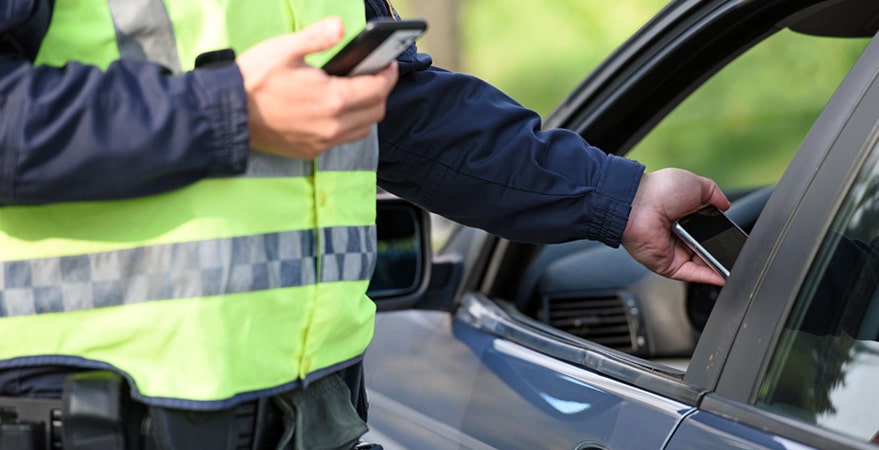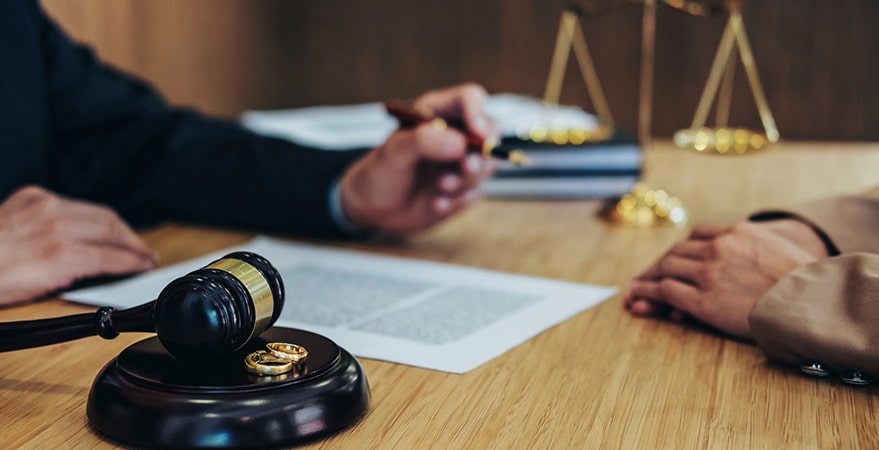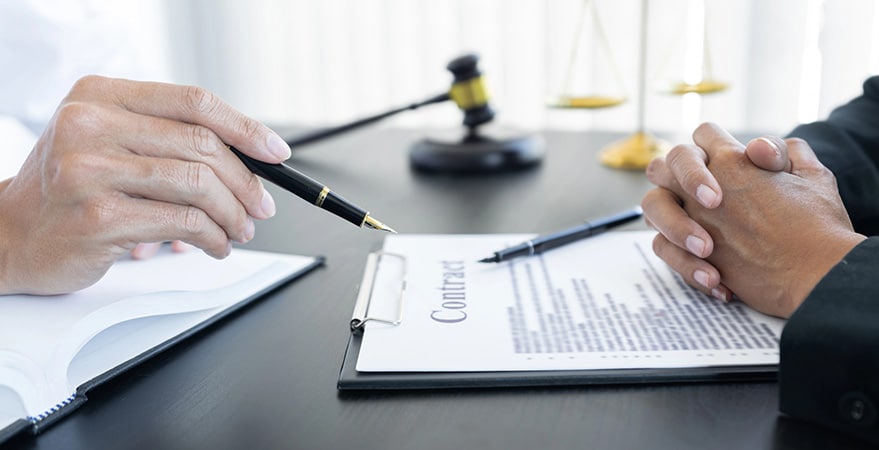Understanding Reasonable Suspicion Vs. Probable Cause
Probable cause and reasonable suspicion are used by law enforcement officers to decide whether to detain a suspect, make an arrest, or search for evidence. The U.S. Supreme Court set the standards for these concepts. While they are similar, there are important differences between them.
What Is Probable Cause?
Probable cause is a legal standard that requires a reasonable belief, based on facts and circumstances, that a crime has been or is being committed. It plays a crucial role in criminal law, allowing police officers to make arrests and conduct searches. To establish probable cause, there must be enough evidence to convince a reasonable person that it is more likely than not that a crime has occurred.
When determining whether probable cause exists, courts consider all relevant factors surrounding the situation. This includes the nature of the offense, available information, witness statements, and any other supporting evidence. Probable cause falls between mere suspicion and proof beyond a reasonable doubt.
It is important to note that probable cause is different from reasonable suspicion. Reasonable suspicion only requires specific facts or circumstances that would lead an officer to suspect criminal activity. Probable cause goes further by requiring enough evidence to establish a reasonable belief in guilt.
What Are Some Examples of Probable Cause?
Various situations can establish the legal basis for a search or arrest. For example, if drugs are discovered during a routine traffic stop, this can serve as probable cause. Another instance is finding stolen property in someone’s possession. Additionally, if an individual is observed engaging in suspicious behavior near a crime scene, this can also establish probable cause.
Probable cause is a higher standard than reasonable suspicion and is necessary to justify certain actions taken by law enforcement officers. Reasonable suspicion, on the other hand, refers to the belief that a person may be involved in criminal activity, based on specific facts and circumstances. While it is a lower standard than probable cause, it still grants law enforcement officers the authority to briefly detain individuals for further investigation. However, it does not provide sufficient grounds for searches or arrests.
To establish probable cause, more substantial evidence is required. It necessitates enough facts and circumstances to lead a reasonable person to believe that a crime has been committed and that the individual in question is likely responsible.
Understanding these concepts is crucial in the face of criminal charges. A competent criminal defense attorney will thoroughly examine whether probable cause was present before any search or arrest took place. If probable cause cannot be established, any evidence obtained through an unlawful search may be suppressed in court, which could potentially lead to the dismissal of charges. Therefore, both law enforcement officers and individuals involved in legal proceedings need to have a clear understanding of the distinction between reasonable suspicion and probable cause.
What Is Reasonable Suspicion?
Reasonable suspicion is a legal concept that allows law enforcement officers to temporarily detain individuals if some specific facts and circumstances suggest they may be involved in criminal activity. This standard is less strict than probable cause, which is required for an arrest or a search. To establish reasonable suspicion, there must be objective and articulable facts that would lead a reasonable person to suspect that a crime has occurred or is about to occur.
Reasonable suspicion gives officers the authority to briefly detain individuals for investigation purposes. However, it does not give them the power to make an arrest or search someone’s property. Instead, it serves as a threshold requirement that allows officers to conduct further inquiries to confirm or dispel their suspicions.
The concept of reasonable suspicion comes from the Fourth Amendment of the United States Constitution, which protects against unreasonable searches and seizures. While there is no clearly defined test for determining reasonable suspicion, courts have ruled that it must be based on more than just a hunch or intuition. It requires specific and contextually relevant information that, when taken together, creates a reasonable inference of criminal activity.
It is important to note that reasonable suspicion should always be analyzed with the specific laws under which law enforcement actions are being carried out. Understanding the distinction between reasonable suspicion and probable cause ensures that individuals’ constitutional rights are protected while still providing law enforcement with the necessary tools to effectively combat crime within the boundaries of the law.
What Is an Example of Reasonable Suspicion?
Reasonable suspicion refers to a situation where law enforcement officers witness someone engaging in suspicious behavior. For instance, if an individual is seen loitering near a known area for drug trafficking and frequently exchanging items with others, it may give rise to reasonable suspicion. This legal standard allows officers to briefly detain the person if they have specific and articulable facts that would lead a reasonable person to believe that the individual has, is currently, or is about to engage in criminal activity. It is important to note that reasonable suspicion is a lower standard compared to probable cause, which requires more substantial evidence to believe that a crime has taken place.
Understanding these concepts is crucial for both law enforcement officers and individuals involved in legal proceedings. It helps maintain a delicate balance between public safety and personal rights within our criminal justice system.
What Is the Difference Between Reasonable Suspicion & Probable Cause?
Reasonable suspicion involves a lower standard of proof compared to probable cause. It requires specific and articulable facts that lead an experienced officer to believe that criminal activity may be occurring. This level of suspicion allows law enforcement officials to temporarily detain individuals or conduct limited searches for further investigation.
On the other hand, probable cause necessitates a higher level of evidence than reasonable suspicion. It requires facts and circumstances that would lead a reasonable person to believe that a crime has been committed or that there is evidence of illegal activity present. Probable cause empowers law enforcement officials to make arrests, obtain search warrants, or conduct more extensive searches.
The primary difference between reasonable suspicion and probable cause lies in the evidentiary standard they require, with reasonable suspicion being less demanding than probable cause.
When determining whether reasonable suspicion or probable cause exists, factors such as the nature of the offense, available information, witness testimony, and officer expertise must be considered.
Understanding the distinction between these two legal standards ensures that law enforcement actions align with constitutional protections while allowing for effective crime prevention and investigation within our society’s framework of laws and regulations.
How Can Reasonable Suspicion Turn into Probable Cause?
The difference between reasonable suspicion and probable cause lies in the level of certainty needed for each standard.
Reasonable suspicion refers to a belief, based on specific and explainable facts, that a person might be involved in criminal activity. It is a lower standard than probable cause, which requires a higher level of certainty that would make a reasonable person believe that a crime has occurred or is currently happening.
Reasonable suspicion can turn into probable cause through further investigation and consultation with other law enforcement officers or legal experts. As suspicions are looked into, more evidence may be discovered that strengthens the case against an individual or increases the likelihood of criminal activity. This gathering of evidence and consultation with others can elevate the level of suspicion from reasonable to probable cause.
Law enforcement officers must carefully evaluate the information they have when determining whether they have reasonable suspicion or probable cause. They should rely on their training and experience, and consult with colleagues or legal advisors if needed, to ensure that their actions align with constitutional standards.
What Circumstances Require Police Officers to Use Probable Cause or Reasonable Suspicion?
Police officers have an important responsibility to determine the level of certainty required for their actions, such as conducting searches, making arrests, or seeking warrants. Both law enforcement professionals and the general public must understand the difference between reasonable suspicion and probable cause.
Here are four key points to consider:
- Reasonable suspicion: Police officers must have a belief, based on specific facts and rational inferences, that criminal activity is occurring or has occurred. This standard is lower than probable cause and allows for brief detentions or limited searches.
- Probable cause: This higher standard requires more evidence and indicates a reasonable belief that a crime has been committed and that the person under investigation is likely involved. Probable cause justifies arrests, full searches, and obtaining search warrants.
- Balancing interests: Police officers must balance their duty to protect public safety with respecting individuals’ Fourth Amendment rights against unreasonable searches and seizures. The level of certainty required depends on the circumstances at hand.
- Legal implications: Failing to meet either standard can lead to evidence being suppressed in court, potentially jeopardizing criminal cases. It is essential for police officers to thoroughly understand these standards to ensure their actions align with constitutional requirements.
How Do Police Officers Determine Probable Cause for Search Warrants?
Police officers need to establish probable cause to obtain a search warrant. Probable cause is a legal standard that requires officers to have reasonable grounds for believing that a crime has been committed and that evidence of the crime can be found in a specific location. It goes beyond mere suspicion or hunches and requires factual information or circumstances that would lead a reasonable person to believe that a search will uncover evidence of illegal activity.
What Happens if Reasonable Suspicion/Probable Cause Were Not Present at the Time of The Stop/Arrest?
If there was no reasonable suspicion or probable cause at the time of the stop or arrest, there could be legal consequences regarding the admissibility of evidence obtained during the encounter. In such situations, courts will assess whether the stop or arrest followed constitutional standards. Here are four important things to consider in this matter:
- Violation of Fourth Amendment rights: The Fourth Amendment safeguards individuals from unreasonable searches and seizures. Without reasonable suspicion or probable cause, a stop or arrest can be considered unreasonable, potentially leading to the exclusion of any evidence obtained.
- Fruit of the Poisonous Tree doctrine: This legal principle states that if evidence is obtained through an illegal search or seizure (due to lack of reasonable suspicion or probable cause), any subsequent evidence derived from it may also be excluded as ‘fruit of the poisonous tree.’
- The Burden on Prosecution: In court proceedings, it is generally the responsibility of the prosecution to demonstrate that there was reasonable suspicion or probable cause for a stop or arrest. Failure to do so could weaken their case.
- Preventive Measures: Law enforcement agencies often provide officers with training on how to establish reasonable suspicion and probable cause, aiming to minimize situations where these requirements are not met.
Understanding these potential legal consequences emphasizes the importance for law enforcement officials to adhere to constitutional standards when making stops and arrests.
How Can an Attorney Help?
Attorneys play a vital role in providing legal guidance and representation to individuals involved in cases where the admissibility of evidence obtained during a stop or arrest is questioned. They ensure that their clients receive fair treatment under the law by helping them understand the distinction between reasonable suspicion and probable cause.
To begin with, attorneys can help evaluate whether the initial stop or arrest was conducted based on reasonable suspicion. They thoroughly review the circumstances leading up to the stop or arrest and assess whether there were enough facts to justify a reasonable suspicion of criminal activity. If it is found that there was no reasonable suspicion, the attorney may argue for the exclusion of any evidence obtained as a result of that unlawful stop or arrest.
Similarly, attorneys can also examine the presence of probable cause during a search or seizure incident. They scrutinize whether there were enough facts and circumstances available at the time that would lead a reasonable person to believe that a crime had occurred or was about to occur. If probable cause is determined to be lacking, the attorney might advocate for suppressing any evidence obtained through such unconstitutional means.
Share This Story, Choose Your Platform!
Table of Contents
- What Is Probable Cause?
- What Are Some Examples of Probable Cause?
- What Is Reasonable Suspicion?
- What Is an Example of Reasonable Suspicion?
- What Is the Difference Between Reasonable Suspicion & Probable Cause?
- How Can Reasonable Suspicion Turn into Probable Cause?
- What Circumstances Require Police Officers to Use Probable Cause or Reasonable Suspicion?
- How Do Police Officers Determine Probable Cause for Search Warrants?
- What Happens if Reasonable Suspicion/Probable Cause Were Not Present at the Time of The Stop/Arrest?
- How Can an Attorney Help?
Emilio was fantastic throughout my ordeal. He was always available, honest, and professional. His expertise and knowldge have no equal. I have never been in trouble before so I was extremely nervous, but Emilio knew exactly what he was doing and was able to clearly explain all possible outcomes. My case was dismissed with no fines or fees – the perfect outcome. I strongly recommend their services.
Related Reading
Ways to Secure Your Cell Phone from the Police in Colorado Many people in Colorado are concerned about protecting the privacy of their smartphone data. While the Fourth Amendment safeguards against unreasonable searches, interacting with law enforcement can still be complicated. Police must follow legal rules to access your phone, but there are practical steps [...]
What Does It Mean to Be Arraigned? An arraignment is the first official court appearance after someone is charged with a crime. At this hearing, the judge explains the charges, reviews the defendant’s rights, and asks for a plea, typically guilty, not guilty, or no contest. While the proceeding itself is often brief, it marks [...]
How Does The Court Know If You Violated a No-Contact Order? Courts in Colorado often rely on no-contact order monitoring systems to ensure individuals follow the restrictions set by the judge. These systems use technology such as GPS ankle bracelets, electronic monitoring tools, and specialized software that can immediately alert law enforcement if a violation [...]















